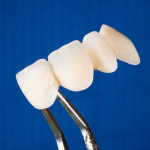Want to know how to fix a gap in teeth without braces? Many people are bothered by spaces between their teeth but are looking for ways to accomplish this without braces. Fortunately, modern dentistry has provided attractive solutions for gaps in teeth that are highly effective, quick, and minimally invasive.
Dental bonding in Atlanta is one of the most common options that patients interested in a simple, affordable way to close gaps in their teeth choose. In this procedure, a tooth-colored resin is placed onto the teeth and sculpted and hardened to close gaps while being aesthetically pleasing. Treatment is quick and is usually completed in one office visit. Dental bonding can noticeably improve your smile!
What Are the Non-Braces Options for Tooth Gaps?
There are alternatives to braces to solve gaps between your teeth. Each option has its benefits for your teeth, budget, and look. The options are as follows:
- Dental bonding for tooth gaps: Place material on the tooth to close the gap; it’s easy and cost-effective.
- Veneers for closing tooth gaps: Placing a thin shell with the desired shape for your tooth over the tooth will get you a long way in durability for aesthetics.
- Clear aligners: These removable trays can move the teeth without the need for metal braces (candidates are mild to moderate).
- Dental crowns: Similar to scaling, dental crowns are used if the teeth are damaged or misshapen, ultimately closing the gap.
- Composite fillings or reshaping: Some gaps can be closed by making minor adjustments to the shape of the teeth or applying composite resin.
Can Dental Bonding Work to Close a Tooth Gap?
Dental bonding in Atlanta is a good choice for people with healthy teeth who want a quick and simple treatment. The steps are:
- Teeth prep: A dentist cleans and lightly roughens the area.
- Resin placement: Tooth-colored material is added and shaped.
- Curing: A special light hardens the material.
- Finishing touch: The dentist polishes it so it looks natural.
Bonding doesn’t hurt, often doesn’t need numbing, and gives quick results.
Are Veneers a Better Option for Certain Patients?
Veneers for closing tooth gaps are perfect for those looking for a more durable, long-term solution. They can:
- Improve tooth shape and size.
- Provide a natural, uniform look.
- Offer resistance to staining compared to bonding.
Veneers need a small amount of enamel to be removed, so they are a bit more involved than bonding, but with good care, they can last 10–15 years.
Can Clear Aligners Close Gaps Without Braces?
Clear aligners are removable, virtually invisible trays that move teeth over time. They are increasingly popular treatment options for adults and teens looking to close the tooth gap without braces and discreetly. Treatment usually takes a few months up to a year , depending upon the severity of the gap in the tooth.
How to Decide Which Treatment Is Right for You?
The best ways to close a tooth gap without orthodontics depend on:
- The gap’s size and place.
- Overall dental health.
- The price and how long it will take.
- Desired aesthetic outcome.
Going to an Atlanta dentist nearby will look at your teeth and make a plan just for you. This is a good first step.
What Are the Tips for Maintaining Your Smile After Tooth Gap Treatment?
Once your tooth gaps are closed, take care of your teeth:
- Brush two times a day and gently floss around the treated area.
- Do not bite into hard foods immediately after bonding or veneers.
- Visit the dentist every three to six months to check for movement or failure of restorations or porcelain veneers.
- Use a night guard if you grind your teeth while sleeping.
- Do everything your dentist tells you to do after treatment.
Enhance Your Smile with Expert Care – Book Now!
Want to fix the gap in your teeth? Make a consultation at Moores Mill Dental today to learn about dental bonding, veneers, and other options, outside of braces. Our professionals are committed to supportive, natural results that last, and you get your confidence back.
FAQs
How long does dental bonding last?
Dental bonding usually lasts 3–7 years, depending on how well you take care of your teeth and your habits.
Are veneers painful to get?
Veneers involve minimal discomfort; local anesthesia is used to ensure a painless procedure.
Can children benefit from gap treatments?
Minor dental bonding or reshaping can be done, but permanent treatments are usually recommended after teeth have fully developed.
Do clear aligners cause any discomfort?
Yes, initial pressure will be felt, discomfort is mild and temporary as teeth suddenly move.
Will teeth gaps return after treatment?
Yes, teeth can shift after treatment if a patient does not appropriately care for them. Retainers and follow-up care might be recommended.






